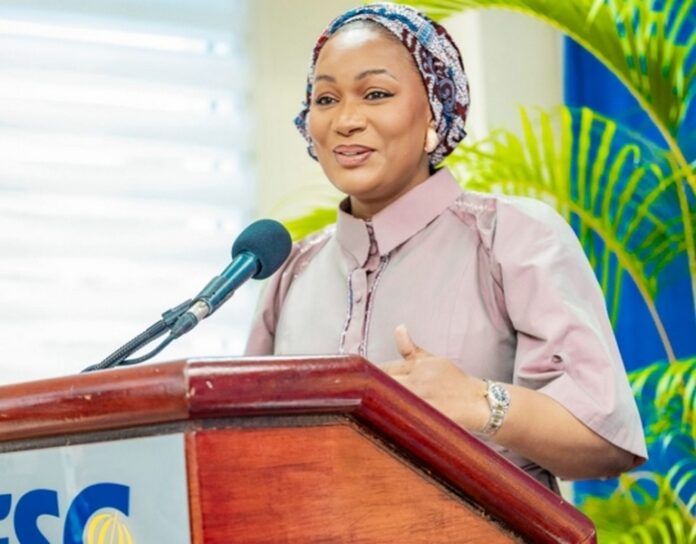She may have made a mark on the national stage, but an often less discussed and less foregrounded aspect of Samira Bawumia’s impact is her international forays. She has marketed this nation; she has advocated for global challenges; she has been a tireless emissary for the vulnerable universally. Equally importantly, she has been a symbolic representation of African heritage and culture through her very elegance and self-presentation.
One of the most praised and recognised first ladies in the United States was Jacqueline Kennedy, not just because of her substance but also her style. Ms Kennedy represented an era of decency, elegance, refinement, and courtesy in America that not only contributed to the nation’s cultural infrastructure but also recognised the significant contributions of spouses and women to international affairs, the presidency, and the nation.
Modern-day diplomacy has taken a dynamic turn. The President and the foreign affairs minister may be the chief diplomats, but other institutions, such as presidential and vice-presidential spouses, can have significant influence in international affairs. On this front, Mrs Bawumia has shown recognisable potential as an archetype of first and second lady diplomacy.
First, she has promoted Ghana’s image abroad through her standout performances, characterised by her masterful delivery and persuasive communication in international forums. Her very image, style, confidence and grace have brought respect, honour and admiration not just to herself but to the nation. One cannot ignore her iconic fashion style and decency, which have become not just a model for young women and girls but a showcase of Ghanaian as well as African culture, enlightenment and values. Mrs Bawumia’s acute awareness of the role of soft power and her ability to channel it through her Afrocentrism maps her out as a foremost proponent and embodiment of the principle of cultural diplomacy.
Another major foray of Samira Bawumia’s international endeavours is in the area of global climate activism and environmentalism. Mrs Bawumia has been deeply committed to addressing climate change challenges, clean energy and environmental sustainability through international partnerships, collaborations and discourses. For instance, she was at the centre of discussions during the Global Forum oof Sustainable Energy for All (SEforALL) in Barbados this year, where she delivered a keynote address and participated in productive discussions. In fact, the issue of clean energy has been at the centre of her international activism. Over the past years, she has been a global ambassador for the Clean Cooking Alliance, where she’s worked relentlessly to mainstream clean cooking policies to reduce emissions, protect the environment and adapt alternative energy practices.
Women and youth empowerment on the global level has been at the apogee of Samira Bawumia’s agenda. This has continued to remain a central issue of concern for organisations such as the United Nations. Mrs Bawumia has been extremely invested and contributed in no small measure to the realisation of this goal. Through her Samira Empowerment and Humanitarian projects, she has continued to contribute to efforts for the improvement of the lives of women and girls, this time beyond Ghana. In June 2025, she was a special guest and keynote speaker at the Women in Mining Summit in Conakry-Guinea where she spoke on sustainable mining practices, inclusivity and innovation.
Nowhere is her industry toward young people across the world more evident than in mentorship. She has carved a niche in this area, as she makes time to engage with scores of students from all over the world at her office or during international travels, inspiring, encouraging and sharing lessons. She has met with students from all over the world, including teams from Harvard University’s Edward S. Mason Fellowship Program, Fordham University Law School, Global Institute for Diversity and Inclusion in Emergency Management (I-DIEM) based in Georgia and the Karen Pritzker Academy of Arts and Fashion, where she mentors underprivileged girls.
It is important to note that her industry in international relations has also made her a source of discourse and attention within the diplomatic community. She has also been extremely adept at marshalling social media and digital tools to engage the rest of the world while promoting this nation.
No nation can conduct modern diplomacy without the tools of the digital age, and there couldn’t be a better presidential spouse for the digital era than the better half of Ghana’s foremost digital apostle, Dr Mahamudu Bawumia. Moments like this, of great strategic consequence for the world, require persons of equal initiative, vigour, and vibe. The more one thinks about it, the more it becomes apparent that Ms. Samira Bawumia would uniquely meet the moment in this globalised and technologically driven age. It is without doubt that she has captured, perhaps enthralled, the world so far, and there’s no doubt she can do more.
The roles of the first or second lady are not always clear-cut, but the activities and initiatives of the occupant can make a difference. International relations now traverse the traditional straitjacket strategies and conventions. Nations must now be smart, innovative and dynamic about how they project their culture and engage the world.
Samira Bawumia has earned her place in history as one of our most dynamic, forceful, and globally-minded second ladies. States hardly experience such rare combinations of soft power, substantive power and steadfast devotion in their second ladies or potential first ladies. For all practical purposes, she will be a tireless emissary, a catalytic instrument and a force majeure in promoting our nation, addressing issues of global concern and repositioning its cultural appeal.
Prof. Etse Sikanku is an Associate Professor of Political Communication, Journalism and Media Studies at the University of Media, Arts and Communication. He’s the Dean of the Faculty of Journalism and Media Studies.
Source: Prof. G Etse Sikanku



